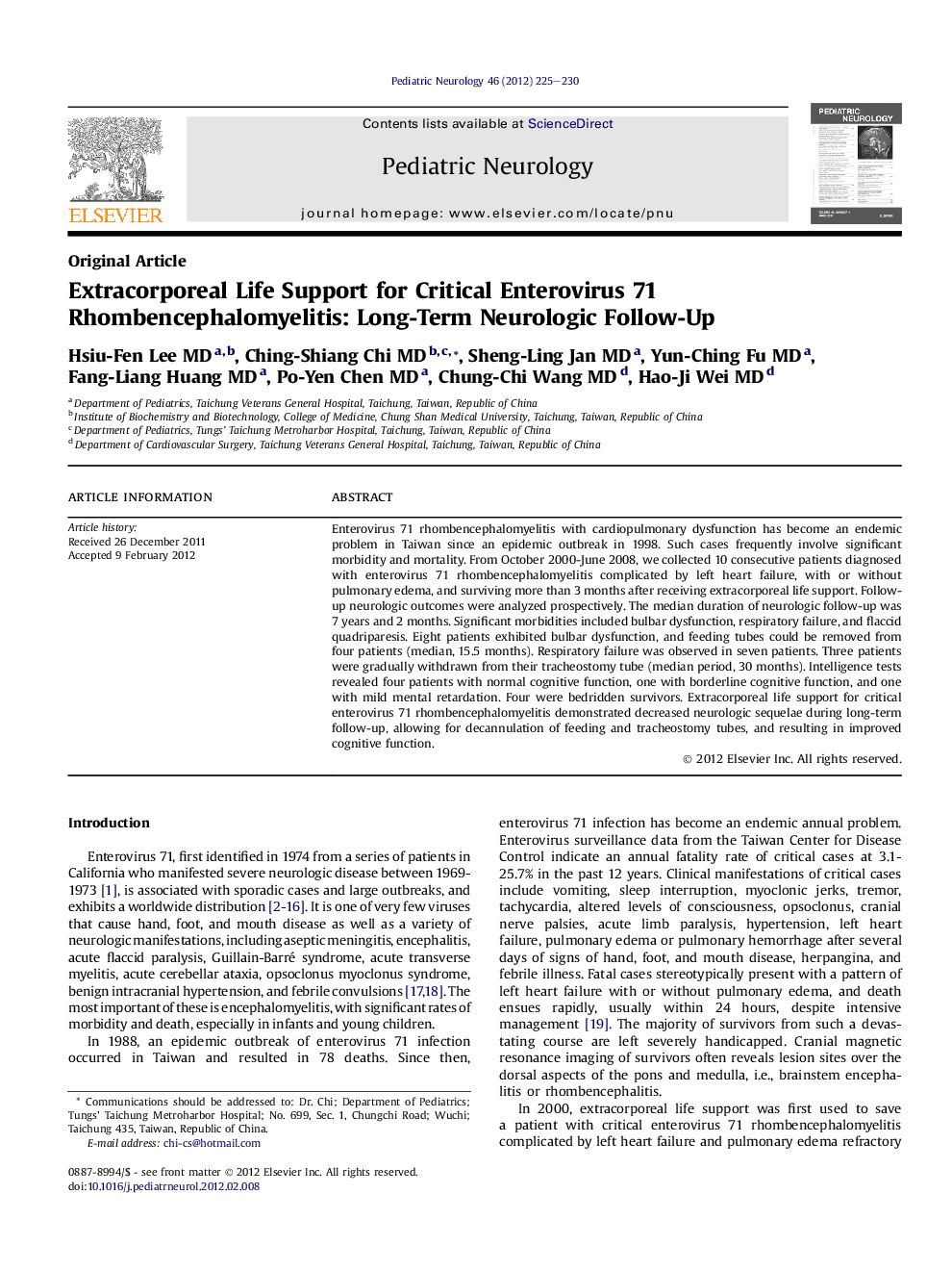| Article ID | Journal | Published Year | Pages | File Type |
|---|---|---|---|---|
| 3085167 | Pediatric Neurology | 2012 | 6 Pages |
Enterovirus 71 rhombencephalomyelitis with cardiopulmonary dysfunction has become an endemic problem in Taiwan since an epidemic outbreak in 1998. Such cases frequently involve significant morbidity and mortality. From October 2000-June 2008, we collected 10 consecutive patients diagnosed with enterovirus 71 rhombencephalomyelitis complicated by left heart failure, with or without pulmonary edema, and surviving more than 3 months after receiving extracorporeal life support. Follow-up neurologic outcomes were analyzed prospectively. The median duration of neurologic follow-up was 7 years and 2 months. Significant morbidities included bulbar dysfunction, respiratory failure, and flaccid quadriparesis. Eight patients exhibited bulbar dysfunction, and feeding tubes could be removed from four patients (median, 15.5 months). Respiratory failure was observed in seven patients. Three patients were gradually withdrawn from their tracheostomy tube (median period, 30 months). Intelligence tests revealed four patients with normal cognitive function, one with borderline cognitive function, and one with mild mental retardation. Four were bedridden survivors. Extracorporeal life support for critical enterovirus 71 rhombencephalomyelitis demonstrated decreased neurologic sequelae during long-term follow-up, allowing for decannulation of feeding and tracheostomy tubes, and resulting in improved cognitive function.
